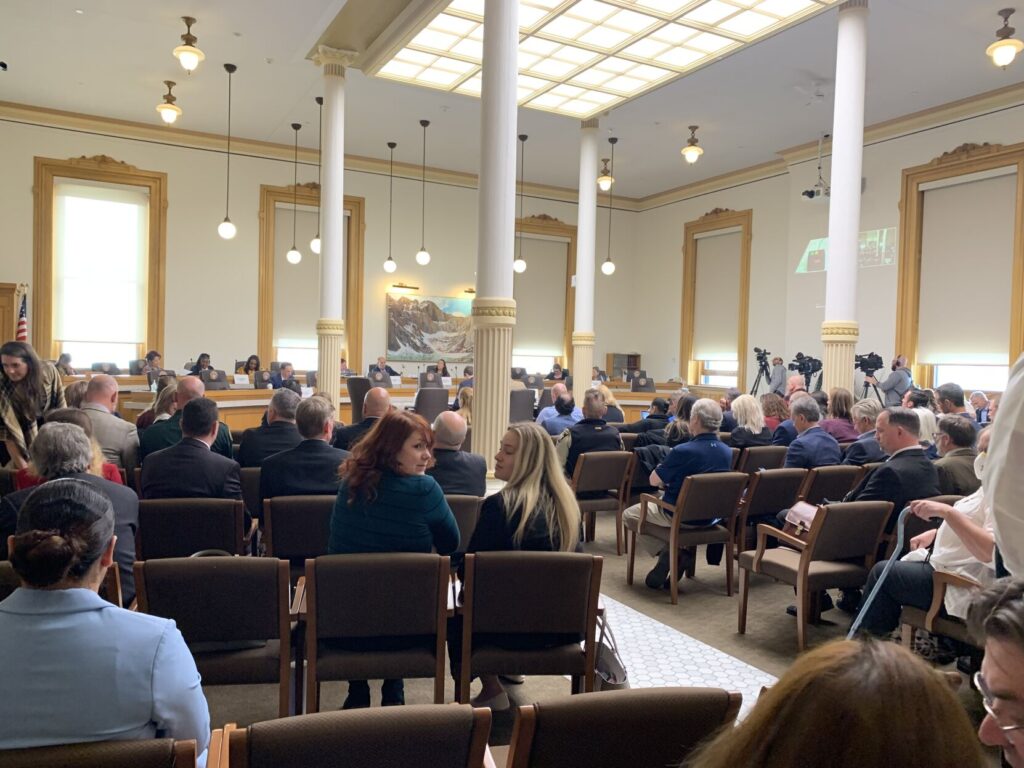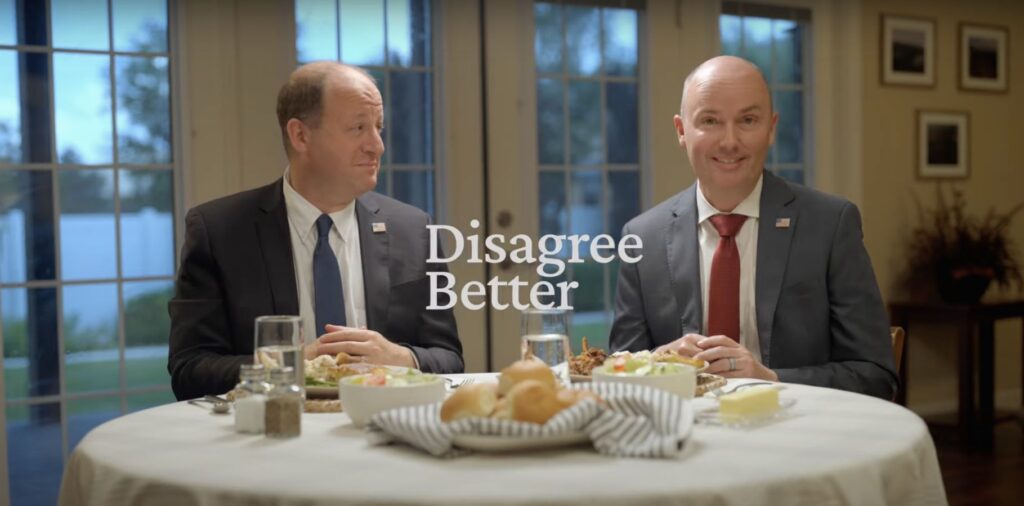Colorado Senate overrides Gov. Jared Polis veto of social media bill
The state Senate voted, 29-6, on April, 25 to override Gov. Jared Polis’s veto of a social media bill. The 29-6 vote was five above the two-thirds majority required for an override.
It’s the first override of a Polis gubernatorial veto of a bill — or any bill from his three predecessors — since the administration of Gov. Roy Romer in 1988.
There have been other veto overrides—in 2007 and 2011—but those were directions from the General Assembly to state agencies as part of the budget m process. In at least three decades, no governor has vetoed a budget bill or even a line item in a budget measure, although they do vetoed those legislative directions occasionally.
Senate Bill 86 would compel large social media companies to remove accounts engaged in illegal activity involving children under 13.
The activities on social media that the bill seeks to rein in include illegal drug sales, illegal firearms sales, sex trafficking of minors, and sexually exploitative material involving children.
In his veto letter, Polis said Senate Bill 86 had good intentions but failed to guarantee the safety of minors or adults; eroded privacy, freedom, and innovation; could hurt vulnerable people; and potentially subject Coloradans to stifling and unwarranted scrutiny of constitutionally-protected speech.
The governor outlined many concerns about the bill, including that it would impose sweeping requirements that, he argued, would mean social media platforms, rather than law enforcement, would enforce state law. He said it would mandate a private company to investigate and impose governmental penalties, notably, permanently de-platforming a user even if a complaint against that user is malicious or unwarranted.
That would make social media platforms the judge and jury, incentivizing those companies to de-platform a user, Polis said.
He said the bill opens the door to abuse “by guaranteeing the availability of sensitive information such as user age, identities and content viewed”—reports that could be made public by the Attorney General.
In a statement Friday, a spokesperson for the governor said: “The Governor vetoed the bill because the bill in its current form is unworkable, contains no safeguards for private information that could be leaked, gives big tech too much power to deplatform people, and is he is worried about preserving civil rights and defending vulnerable Coloradans, which are so important at this critical moment.”
The governor supported other aspects of the legislation, the office said. Those included giving law enforcement “new tools to crack down on online criminal activity, especially targeted at children.”
“Gov. Polis offered specific improvements to the language that would’ve strengthened law enforcement’s ability to crack down on illegal activity online without impeding people’s privacy and freedom. He remains open to future legislation that accomplishes those objectives,” the governor’s office said.
The governor’s veto was not unexpected. The bill was opposed by the administration, major tech companies, such as TikTok, and the ACLU, ProgressNow Colorado and Rocky Mountain Gun Owners.
SB 86 won support from the Attorney General, in a rare public division with the governor’s office. School districts, the Colorado Children’s Campaign, all 23 elected District Attorneys, Children’s Hospital, and the chiefs of police association also supported the measure.
Four lawmakers changed their votes between the final vote and Friday’s override. Democratic Sens. Janice Marchman of Loveland and Katie Wallace of Longmont both voted in favor of the bill on April 4 and against the veto override Friday. Republican Sens. Marc Catlin of Montrose and Janice Rich of Grand Junction both voted against the bill on April 4 and in favor of the veto override Friday.
The override had the support of the senate leadership: Senate President James Coleman and Senate Majority Leader Robert Rodriguez, both Denver Democrats; Senate President Pro Tem Dafna Michaelson Jenet, D-Commerce City; Senate Minority Leader Paul Lundeen, R-Monument and Senate Assistant Minority Leader Cleave Simpson, R-Alamosa.
In her appeal to her Senate colleagues, Sen. Lindsey Daugherty used language rarely heard in the state Capitol: “I move that Senate Bill 86 become law, notwithstanding the governor’s veto.”
“This bill is about one thing above all: protecting our kids,” she said. Social media companies would be required to remove users who use these platforms to sell guns, drugs and to sexually exploit children. It’s not about censorship or speech, she said. This bill would hold the platforms to the bare minimum…that’s not overreach, that’s common sense,” and choosing to protect the business interests of billion-dollar tech companies over the safety of Colorado kids.
Co-sponsor Sen. Lisa Frizell, R-Castle Rock, discussed the misinformation surrounding the bill, calling it an attempt to scare people and maintain the status quo. “It’s time to dig deep and find the courage and convictions within all of us to protect the children of the state of Colorado,” she told the Senate.
The House is the next stop for the override of Senate Bill 86, and that’s expected to take place on Monday. That does give the governor the weekend to find House Democrats who will switch votes.
The House voted on March 31 to approve the bill on a 46 to 18 vote, with 35 of the 46 votes coming from Democrats.
A second veto override on Senate Bill 77, a bill that makes major changes to the state’s open records law, was scheduled for Friday. However, it was postponed until Friday, May 2, leading to speculation that the votes may not be there for an override.
Editor’s note: This story has been updated with a statement from Gov. Jared Polis.











